"Pure gold" on the western side of Yen Tu
In the introduction to Khe Ro forest in the Tay Yen Tu Nature Reserve (Son Dong), there is a paragraph "Khe Ro forest is home to 786 species of plants, including many rare species such as Pomu, pine, aloe wood, and iron wood...". It is just a little bit of information, but behind it is a long story.
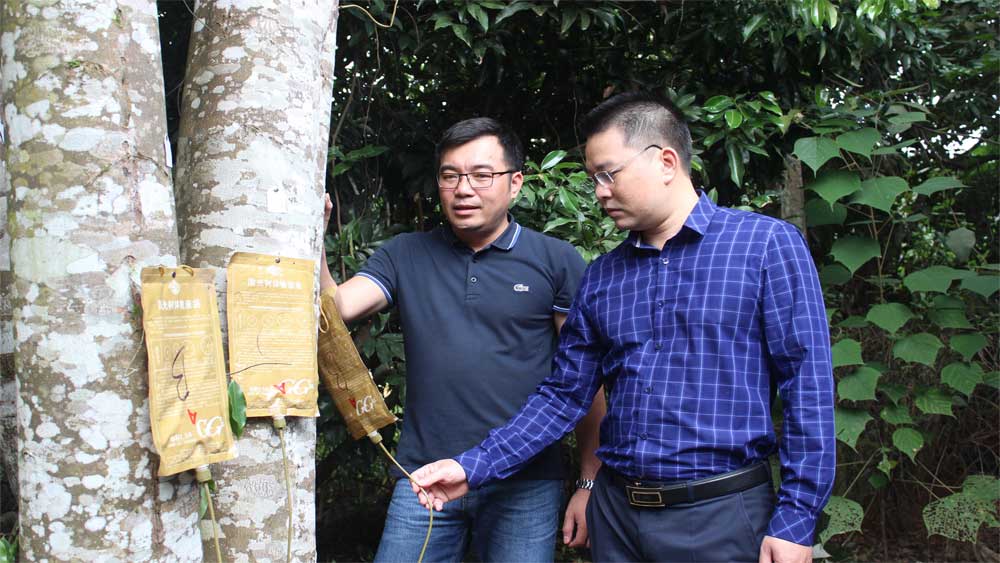 |
|
Dr. Nguyen Duy Kien, Director of the Vietnam Agarwood Research, Application and Development Joint Stock Company (left) introduces agarwood generating technology to Secretary of the Son Dong district Party Committee Nguy Van Tuyen. |
Remembering several times going deep into the forest of Tay Yen Tu, I heard many stories about the "agarwood mines" of ancient Son Dong. Vi Van Tang, a Tay ethnic minority in An Lac commune said several decades ago (about after 1975), locals did not fully understand the value of agarwood, so when some people from the central region came to Son Dong to buy this special product, Tang and many others went to the forest to over-exploit it. Agarwood in the forest was almost "extinct", no longer easy to find.
According to connoisseurs, the quality of Son Dong agarwood ranked second, only behind that in Khanh Hoa, Quang Nam and Ha Tinh. However, due to over-exploitation and no active farming, this plant has gradually faded away.
Pham Duc Son (born in 1950) in Rong village, An Lac commune, who has many years of afforestation, said in the family's 7-ha area, he still keeps about 60 ‘do bau’ trees of over ten years old. With decades of experience, he found that Son Dong mountain area is particularly suitable for the trees to produce natural aloeswood. Khe Ro forest used to have trees producing 200 kg of agarwood, of which about 50 kg of grade 1, also known as “ky nam” called the "pure gold" of the forest. With a passion for agarwood, he many times tried to plant ‘do bau’ trees in his family’s garden and forest to create agarwood but failed to achieve the desired results.
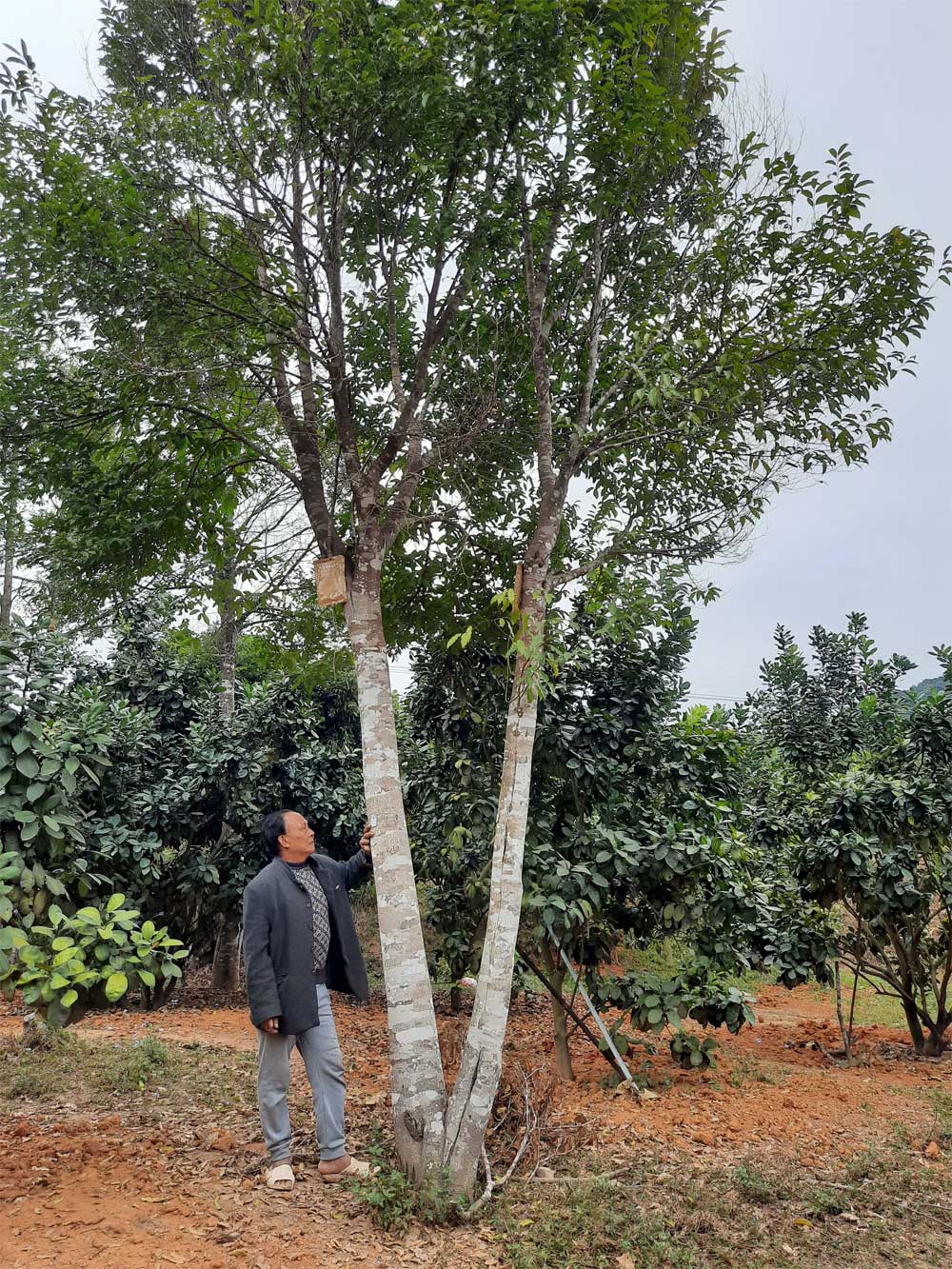 |
|
Pham Duc Son in Rong village, An Lac commune (Son Dong) stands beside a ‘do bau’ tree transplanted to create agarwood.
|
"The fortune" came to Son when the Vietnam Agarwood Research, Application and Development Joint Stock Company at No. 406, Le Loi street (Bac Giang City) embarked on raising the level of Son Dong aloeswood in 2020. After the survey, the business immediately signed a contract with Son's family to cooperate in cultivating and exploiting agarwood.
Dr. Nguyen Duy Kien (born in 1982), a resident in Yen Lu commune (Yen Dung district), Director of the company, and also a scientist dedicated to aloeswood, excitedly shared: “I have come to all areas with agarwood in the country and the company currently has set up links in producing aloeswood on a large area in many provinces such as Ha Giang, Son La, Hai Duong, Ha Tinh, Quang Nam, Binh Duong... But in the first visit to Son Dong at the invitation of the district leaders, I suddenly realized that this is a land especially suitable for the development of ‘do bau’ trees. Through many fact-finding tours to study natural conditions, climate, soil and talk to indigenous people, I decided to change direction and focus on this land”.
The enterprise, established in 2015, is the first unit in Vietnam to apply the technology of "transplanting to create biological agarwood" on aloeswood trees, initially applied on ‘do bau’ trees scattered in Cam Dan, An Lac, Duong Huu and Thanh Luan communes and Tay Yen Tu township. After transplanting agarwood into many trunks for a while, the trees developed well and began to form agarwood.
However, Dr. Nguyen Duy Kien was not satisfied with the initial achievement but the long-term goal is to form a large and stable production area. "The demand for aloeswood in the world is huge, while the Vietnamese product is especially favored by customers," he said. “I want to bring Son Dong agarwood back to the "map" of this special product of Vietnam and introduce it to domestic and foreign partners. We are trying to bring the natural and safe agarwood to consumers based on science and technology that do not affect natural resources, thereby contributing to preserving the source of aloeswood for future generations, restoring and developing the traditional agarwood industry of Vietnam ".
Quoc Phuong
 Bắc giang
Bắc giang



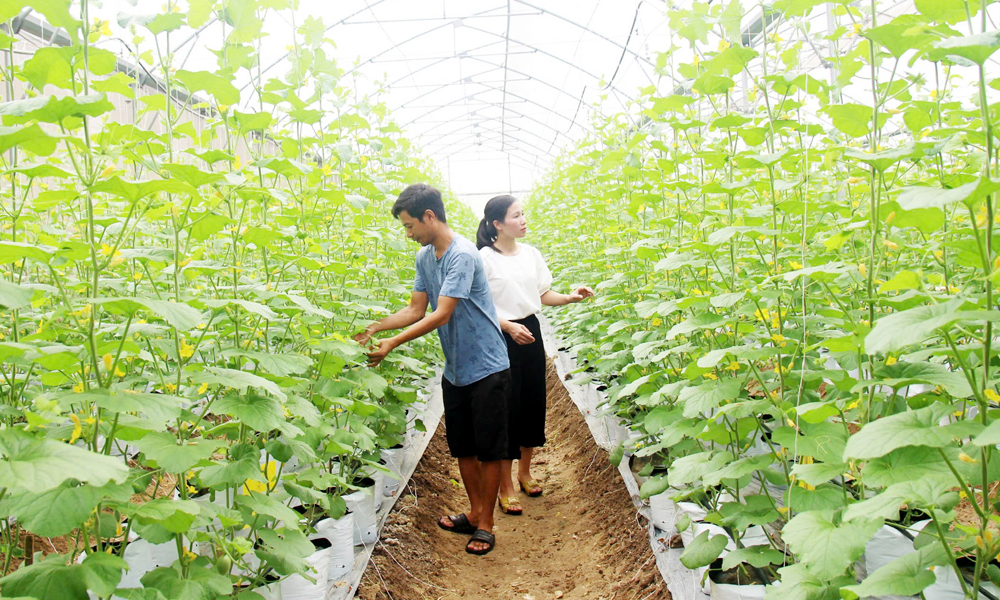


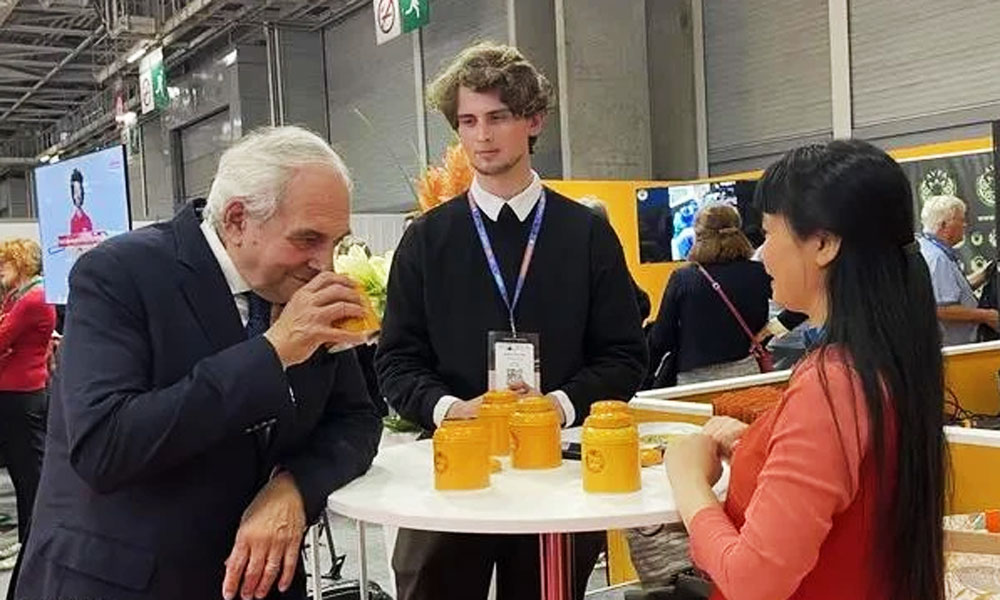
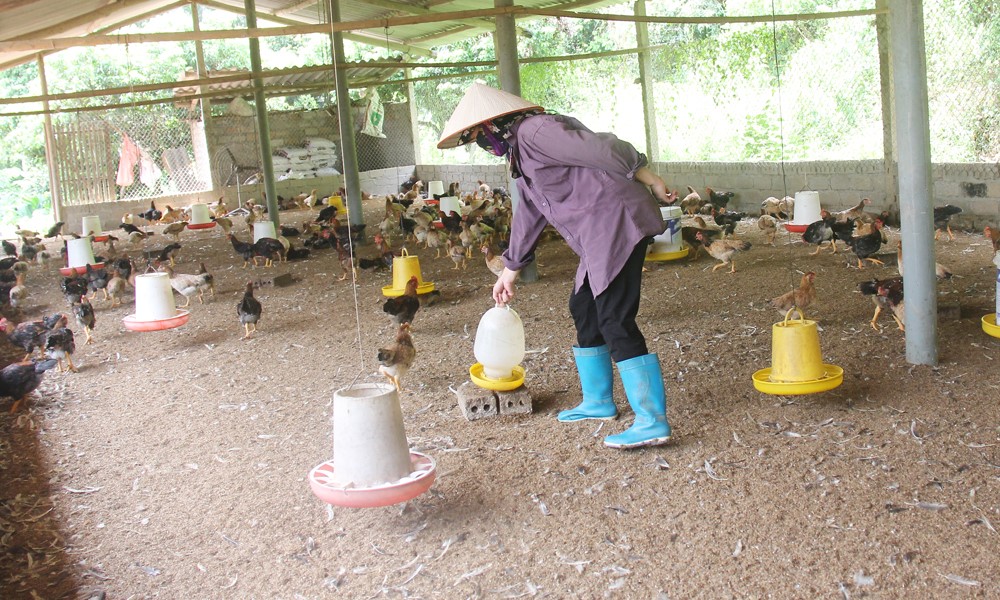



Reader's comments (0)